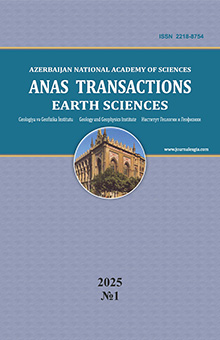№ 2,
2009
Download the article
Influence of the wetting ability and hydrophobicity of the muck surface on restriction of the water production
Institute of Geology and Geophysics of Azerbaijan National Academy of Sciences, AZ1143, Baku, H.Javid av., 119
Summary
A-
A+
For carrying out water-isolating works in premature watered producing wells the most expedient is application of composite solutions of the chemical products. By the laboratory researches in this direction carried out by us, it is established that the composition of silicate and alkali at their ratio 3:2 in produced water forms a deposit in more quantity than their solutions separately.
Carrying out repair-isolating works with using the given composition in 4 wells of the OGPB “Absheronneft” have allowed to reduce volume of water in extracted production and to increase oil production rate.
It is necessary to note that moistening ability of the well bottom zone definitely influences on efficiency of water-isolating works. In this connection influence of the wetting ability and hydrophobicity of the muck surface, as well as the pressure gradient on restriction of water production have been investigated.
It is established, that gel-like deposits formed as a result of chemical reaction between molecules of alkali-silicate solutions and salts of the produced water with the greater adhesive force contact to hydrophilic surface.
At pressure gradients up to 0.5 MPa/m restoration of the water penetration of the isolated zone for models with hydrophilic and hydrophobic surfaces makes accordingly 15 % and 30 %.
Values of a surface tension for surface-active substances (SAS): shkonau-WON and catapin A and adsorption of molecules of these SAS on quartz sand have been determined, as well as moistening ability of the solutions of the investigated SAS have been investigated.
On the basis of the studies carried out it is established that wetting ability and hydrophobicity of the muck surface render essential influence on stability of the created water-isolating baffle.
Carrying out repair-isolating works with using the given composition in 4 wells of the OGPB “Absheronneft” have allowed to reduce volume of water in extracted production and to increase oil production rate.
It is necessary to note that moistening ability of the well bottom zone definitely influences on efficiency of water-isolating works. In this connection influence of the wetting ability and hydrophobicity of the muck surface, as well as the pressure gradient on restriction of water production have been investigated.
It is established, that gel-like deposits formed as a result of chemical reaction between molecules of alkali-silicate solutions and salts of the produced water with the greater adhesive force contact to hydrophilic surface.
At pressure gradients up to 0.5 MPa/m restoration of the water penetration of the isolated zone for models with hydrophilic and hydrophobic surfaces makes accordingly 15 % and 30 %.
Values of a surface tension for surface-active substances (SAS): shkonau-WON and catapin A and adsorption of molecules of these SAS on quartz sand have been determined, as well as moistening ability of the solutions of the investigated SAS have been investigated.
On the basis of the studies carried out it is established that wetting ability and hydrophobicity of the muck surface render essential influence on stability of the created water-isolating baffle.
